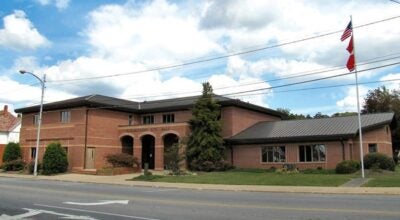Haslam issues burn ban for 51 of state’s 95 counties
Published 4:47 pm Tuesday, November 15, 2016
In the wake of wildfires across the state Tennessee Gov. Bill Haslam issued a regional burn ban Monday evening for more than half of the counties in the state.
Haslam issued a proclamation declaring a regional ban on burning in 51 of the state’s 95 counties in response to the ongoing drought conditions and the destructive wildfires throughout Middle and East Tennessee. All of the counties in the Northeast Tennessee region, including Carter County, fall under the burn ban issued by Haslam.
“Persistent, dry weather has created conditions of extreme drought in certain areas of the State of Tennessee,” Haslam said in his proclamation. “These extreme drought conditions have contributed to at least 74 current wildfires across approximately 13,224 acres in the state.
“These wildfires are creating air quality concerns and threatening property and safety,” the Governor added.
According to data from the National Drought Mitigation Center most of the state is classified as being in either a state of “moderate drought” or a state of “severe drought.” The Northeast Tennessee region is currently rated as being in “abnormally dry” to “moderate drought” conditions. According to the NDMC, the southeastern portion of the state has been the hardest hit by drought conditions with much of that region being classified as in “extreme drought” or “exceptional drought.”
State officials are not anticipating an end to drought conditions in the near future as forecasts are calling for little, if any, chance of precipitation.
“We have a slight chance on Friday night for showers, but it is a very slight chance,” said Meteorologist Jessica Winton with the National Weather Service regional office in Morristown. “Right now the trend has been as the front moves toward us it dries out. So right now we don’t have a lot of confidence in that developing.”
The proclamation immediately placed into effect a ban prohibiting any open-air burning, including campfires and the burning of brush, vegetation, household waste or construction debris. The ban will remain in effect until Dec. 15.
On November 4, State Agriculture Commissioner Jai Templeton issued a burn ban for four Tennessee counties — Claiborne, Jefferson, Loudon and Sevier. More counties were added to that list in the following days, bringing the total number up to 13, as wildfires continued to burn and drought conditions persisted. While Robertson and Sumner counties were not included in the regional ban issued on Monday by Haslam, those two counties remain under a burn ban issued by Templeton.
A governor’s ban includes municipalities and overrules any local ordinances, whereas a commissioner’s ban is superseded by municipal ordinances. On Monday, prior to the announcement of the ban proclaimed by Haslam, the Elizabethton Fire Department issued a burn ban for city residents and Roan Mountain State Park issued a ban on open burns as well.
A violation of a burn ban is punishable as a Class A misdemeanor under state law and carries a fine of $2,500 and/or up to 11 months, 29 days in jail.
Residents in counties not included under any of the current bans must obtain a safe debris burning permit to burn brush, vegetation, household waste or construction waste. The Tennessee Department of Agriculture’s Division of Forestry, however, does not expect to issue any permits until the state receives substantial precipitation. A violation of burning without a permit is punishable as a Class C misdemeanor which carries a fine of $50 and/or up to 30 days in jail.
Currently, several major wildfires are being battled in the Eastern portion of the state. A total of 26 counties in the state have recently reported wildfires or spreading brush fires. Two such fires were reported in Carter County, both of which occurred over the weekend — one in the Old Railroad Grade Road area of Roan Mountain and one on Holston Mountain in the Stoney Creek area.
Because of smoke from the numerous fires throughout the region, the Tennessee Department of Environment and Conservation has issued air quality alerts.
“Smoke is made up of a complex mixture of gases and fine particles produced when wood and other organic matter burn. The biggest health threat from smoke comes from fine particles,” TDEC stated on its website regarding air quality alerts. “These microscopic particles can get into your eyes and respiratory system, where they can cause health problems such as burning eyes, runny nose, and illnesses such as bronchitis. Fine particles also can aggravate chronic heart and lung diseases.”
Large portions of the state have been under a “Code Orange,” which means the air is “Unhealthy for Sensitive Groups” under TDEC’s alert system. The alert comes with the following health message: “People with heart or lung disease, older adults, and children should reduce prolonged or heavy exertion.”
For today, Wednesday, Nov. 16, TDEC elevated the air quality alert level to “Code Red” for residents within the metropolitan areas of the Tri-Cities, Knoxville, Chattanooga, and The Great Smoky Mountains. A “Code Red” is listed as “Unhealthy” under TDEC’s alert system and comes with the following health message: “People with heart or lung disease, older adults, and children should avoid prolonged or heavy exertion. Everyone else should reduce prolonged or heavy exertion.”
Tennessee remains under a “Level 3” State of Emergency at this time. The State of Emergency was declared on Thursday, Nov. 10, by the Tennessee Emergency Management Agency.






